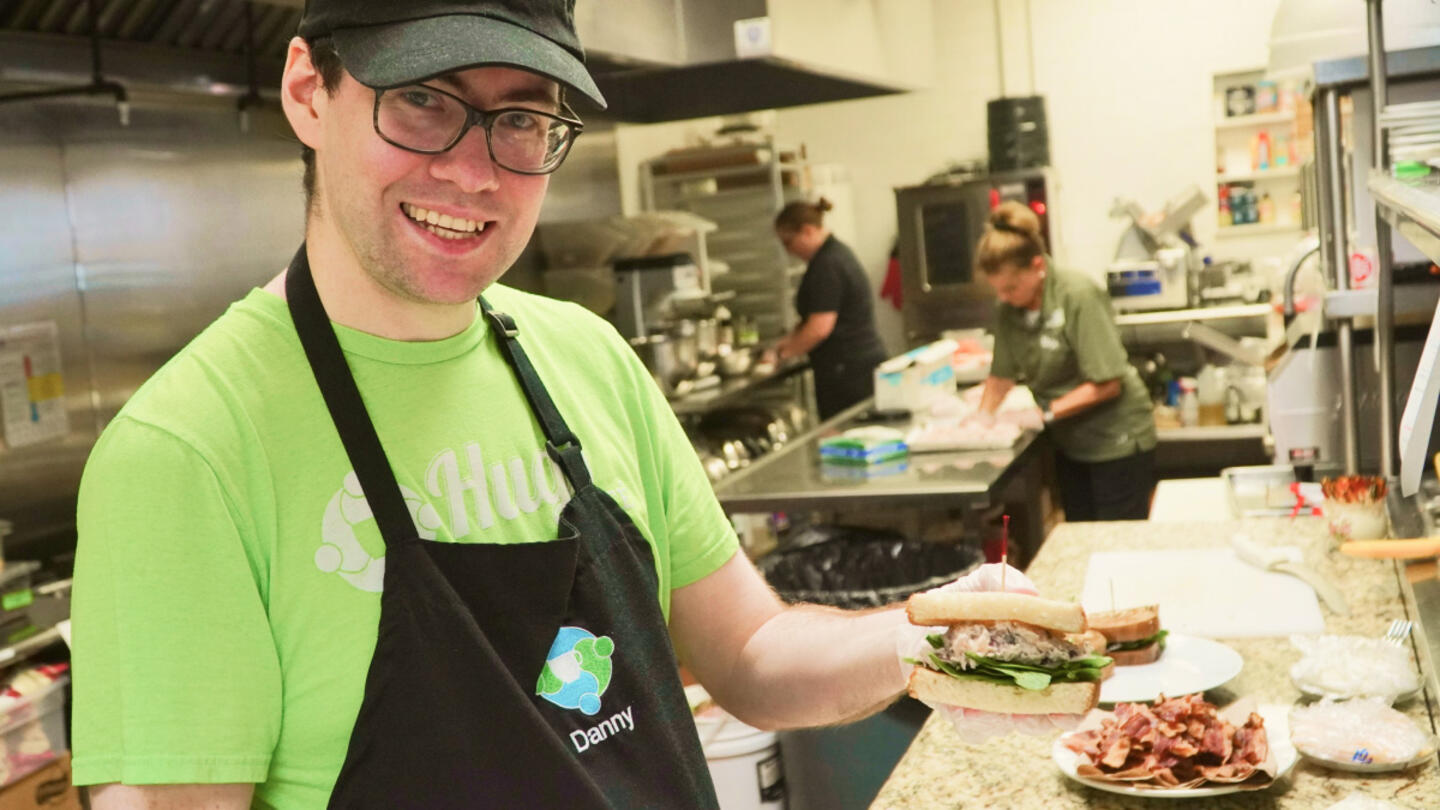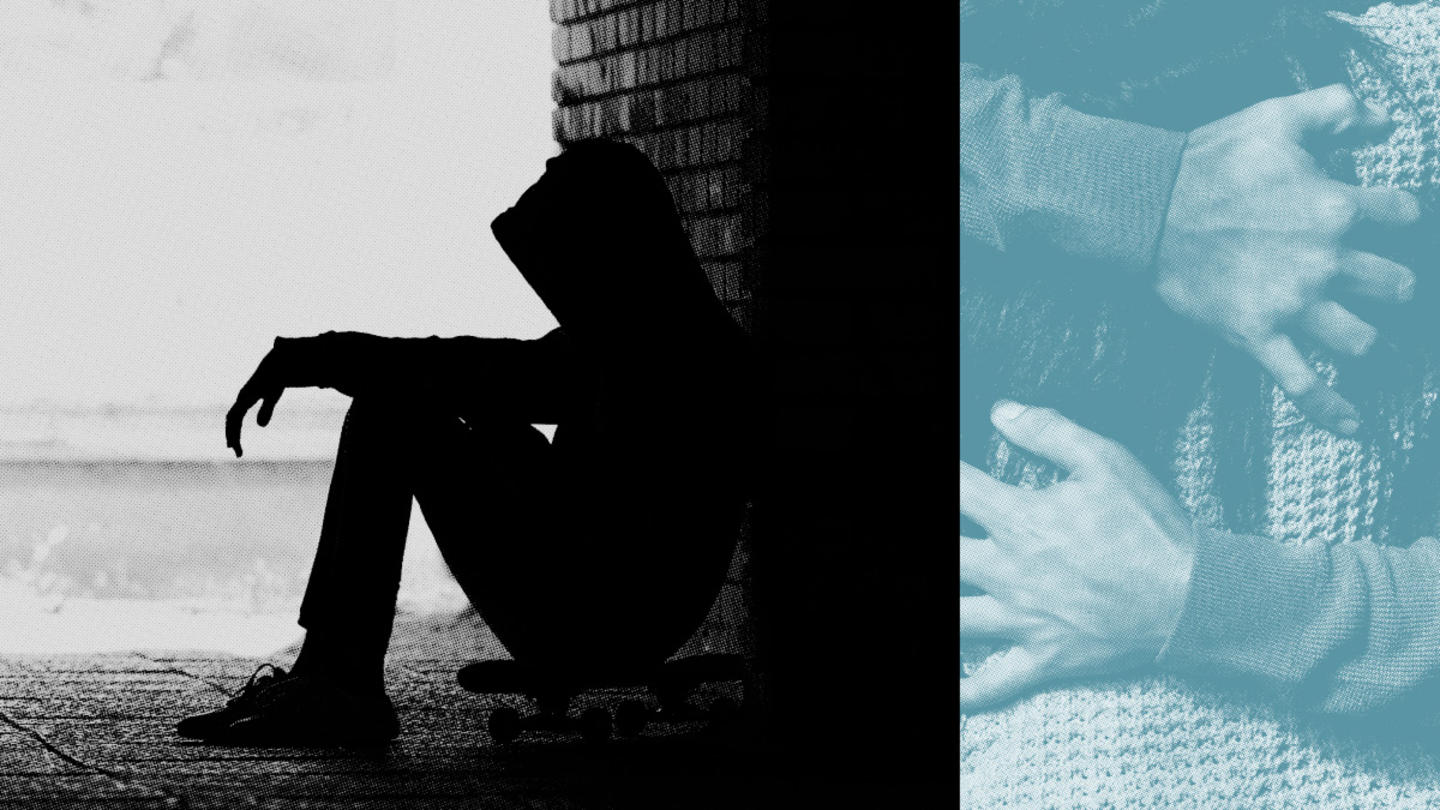Jennifer Pankey began using speed when she was 11 years old. She was addicted immediately. For years, she wanted to stop but felt out of control. She lost everything: her home, her cars, her baby.
"Losing my daughter was like having my organs ripped out and spilled on the floor," she says. That was the moment "when it all came together." She decided to get help.
Pankey spent 10 months in rehab and did everything she was told to do to get her daughter back, but she still felt broken. She didn't know how to function in a sober world. "I had no life skills whatsoever, none," she says. "I had no idea what it was like to have worth or to respect myself. I was not trustworthy, so I was definitely not going to trust anybody else."
Solutions for Change — a nonprofit transformational academy for families experiencing homelessness — helped Pankey rebuild. They gave her a place to live, a job, trauma therapy, and life skills classes. More than that, they gave her community and accountability.
Pankey's empowerment coach had been through similar struggles and could relate to her painful past. Her community supported her commitment to sobriety. At the nonprofit's aquaponics farm, she worked hard alongside co-workers with similar life experiences.
"Over time, they saw that I was trustworthy and valuable, and so they made me a manager out at the farm," she says. "They were able to help me rebuild myself."
Since 1999, Solutions for Change has transformed the lives of more than 4,300 parents and children — 76% of graduates leave homelessness behind for good.
Servant leadership, a key element of the program, had a profound effect on Pankey. She learned to change her own life by meeting the needs of others and helping them move forward. "It changes you," she says. "You slowly, but surely wake up one day, and you're like, 'Wow. I'm this person that I never thought I would be.'"
How California's top-down model is making homelessness worse
This nonprofit is located in San Diego County, California. Despite spending $12 billion on homelessness last year, California has the largest homeless population in the country. In San Diego County, every month more people are becoming homeless than are finding housing — a problem that has been ongoing for two years. The system isn't keeping up.
Solutions for Change is unique in California because the program requires its beneficiaries to stay sober and take responsibility for their own rehabilitation. Since 2016, California has required that all state-funded housing programs adopt the top-down, one-size-fits-all "Housing First" model, offering long-term housing to people experiencing homelessness, without asking for lifestyle or behavioral changes.
This model oversimplifies homelessness. Lack of housing is a symptom of more complicated problems like generational poverty, social poverty, mental illness, addiction, or chronic unemployment. Long-term recovery requires individualized solutions that create community and restore personal dignity and purpose.
Housing First has been adopted by the federal government as well as many states and municipalities. When it was first introduced, it was touted as the cure for homelessness. Decades later, the research suggests otherwise.
According to a study published in the Journal of Housing Economics, for every 10 units California builds, only one person is permanently housed. Once a person experiencing homelessness is housed in permanent government housing, they can stay indefinitely — and many do. Turnover is so low that governments have to keep building more units. A 2017 study showed that, after two years, many people offered housing had not improved their circumstances.
Accountability changes everything
Solutions for Change has identified dependency as the "umbrella" cause of homelessness. Dependencies vary and might include government support, an addictive substance, or an unhealthy relationship, but the overarching theme is the same: Something bigger is keeping them stuck.
"Everything we do is helping to solve the root causes of dependency — to heal the past traumas so our students can be independent," says Emily Fauber, director of community engagement at Solutions.
Giving a person permanent housing perpetuates the dependency, says Fauber. She and her team are so committed to breaking the cycle of dependency that when California decided all state-funded housing services were required to offer Housing First, the organization turned down millions of dollars in state funding.
Solutions for Change provides support differently, offering only temporary housing as a safe place for participants to heal and work on their dependencies. Children are welcomed as part of the family recovery plan. The nonprofit's motto: "Get up. Suit up. Show up." Participants stay sober, take care of their children, attend life skills classes, show up for therapy, save money, and contribute to the community. They assume responsibility for their own lives and make a plan for long-term stability.
Students learn to be grateful for this accountability. "It's not a chore," says Chelsea Anderson who is the memorable experience manager at Solutions. "It's something they appreciate that we provide because they see the value and the change in their own lives." As students shed their government support, they love being able to say, "I don't take government money anymore," Anderson explains. For some, it's the first time in their lives that they can say that.
"Our whole program is built on the foundation of community accountability," says Fauber. "When we have a strong community around us, who want the best for us and can see that we have amazing potential, we can transform our lives."
Sign up for the Strong & Safe Communities newsletter for stories, ideas, and advice from changemakers working with their neighbors to address the biggest problems we face.
Personal empowerment and servant leadership — key ingredients for long-term recovery
The deeply personal changes necessary for ending and healing dependencies are hard. Many students come into the program not knowing what trauma is, not believing in their self-worth, and feeling like independence is an impossible fantasy. This is why Solutions for Change gives every student an empowerment coach.
Empowerment coaches are graduates of the program — individuals who have overcome their own homelessness and the dependencies that caused it. They're not social workers. They're people with personal experience defeating the "Churn" — what the organization calls the endless cycle of trauma, handouts, victimhood, and dependency that cause chronic homelessness.
"They can meet our students right where they are," says Fauber of empowerment coaches. She hears from students all the time about how much they trust and respect their empowerment coaches. Knowing that this person has overcome similarly hard things is a powerful connection.
This peer model is valuable in other ways. When a student or family is struggling, empowerment coaches are the first to notice. "Our coaches are uniquely positioned to accurately identify early signs of relapse," says Fauber, "not only identify those, but relate to them because they've been through that."
Servant leadership is another part of the healing process. Students move from dependency to independence to interdependence. They become a valuable part of their community.
"I never thought I would be able to change my life serving others," Pankey says.
'There are second chances in life'
On the Solutions for Change campus, all of the apartments face inward, looking over a courtyard. At about 4 p.m. every day, children start arriving home from school, and parents mingle in the courtyard while they welcome their children. "The kids are all friends," Anderson says. "The parents are watching each other's kids, and they trust that their kids are in a safe place. They're all growing together for the better."
The sense of community is healing.
"There's a lot of intrinsic value to living in community with others," says Fauber. Students take that community mindset with them as they graduate the program, which usually happens in less than two years. Graduation requirements include a stable job, long-term housing arrangements, and $3,000 in the bank.
Pankey graduated from Solutions for Change 10 years ago. She is raising her daughter. She now owns her home and serves as vice president of transformational impact at Solutions, the nonprofit that helped her transform her life.
"There are second chances in life," she says. "You can change. You can be better, and you can do things differently. And it's completely up to you to say that, 'This is not how the story is going to end.'"
***
Solutions for Change is supported by Stand Together Foundation, which partners with the nation’s most transformative nonprofits to break the cycle of poverty.
Learn more about Stand Together's strong and safe communities efforts, and explore ways you can partner with us.

People with disabilities want meaningful work — and Hugs Cafe is making it happen.

At this ‘resort,’ children with intellectual disabilities are seen as gifts to be celebrated and loved.

Veterans experience loss when leaving service. Could this be key to understanding their mental health?

The Grammy-nominated artist is highlighting the stories we don’t get to hear every day.
